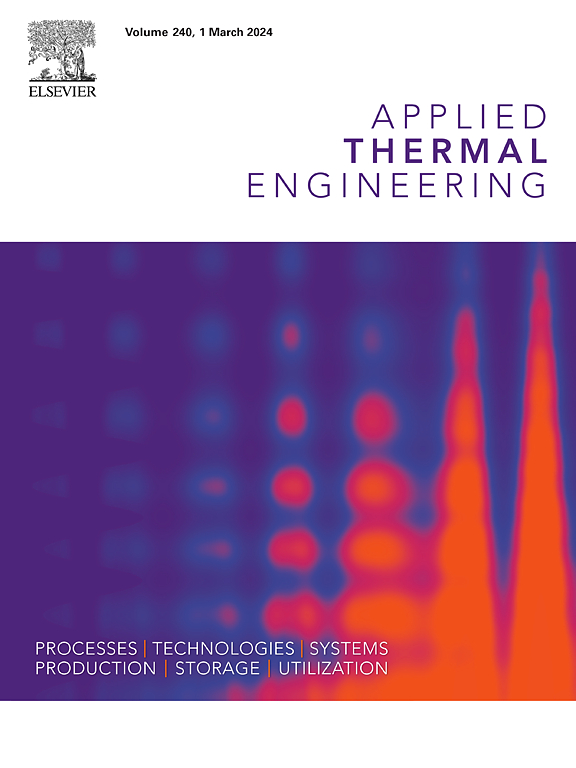新型PEMFC热管理策略及温度分布的建模与仿真
IF 6.1
2区 工程技术
Q2 ENERGY & FUELS
引用次数: 0
摘要
热管理控制方案是保证质子交换膜燃料电池(PEMFC)性能最优的关键。对燃料电池内部温度分布的深入分析,可以为改进热管理控制方案提供见解。本文首先介绍了一种新的控制技术,称为集成激光模拟器逻辑控制器(ILSL),用于控制PEMFC的堆和冷却剂入口温度。将所提出的ILSL控制器与积分模糊控制策略(IFL)、PID控制策略(PID)和基于强化学习的控制器进行了比较,用于控制PEMFC堆和冷却剂温度。利用MATLAB/Simulink和Fluent软件对三种温度管理方案下燃料电池内部的温度分布规律进行了研究。研究结果表明,采用ILSL的温度控制策略在温度控制过程中具有超调量小、调节时间短、无静态误差和鲁棒性强等优点。基于温度分布分析,ILSL控制器可以有效防止高温区过热风险,缩短高温持续时间。本文章由计算机程序翻译,如有差异,请以英文原文为准。
Modeling and simulation of a novel thermal management strategy and temperature distribution in PEMFC
The thermal management control scheme is essential for ensuring an optimal performance of Proton Exchange Membrane Fuel Cells (PEMFC). An in-depth analysis of the temperature distribution within the fuel cell can provide insights for enhancing thermal management control scheme. This paper initially introduced a novel control technique, called the Integral laser simulator logic controller (ILSL), to control the stack and coolant inlet temperatures in PEMFC. The proposed ILSL controller has been compared with Integral fuzzy control strategy (IFL), PID control strategy (PID) and reinforcement learning based controllers for controlling the PEMFC stack and coolant temperature. The temperature distribution law inside the fuel cell is investigated using a joint simulation of MATLAB/Simulink and Fluent under the three temperature management schemes. The study findings indicate that the temperature control strategy employing the ILSL has several advantages in the temperature control process which include low overshoot, short regulation time, no static error and strong robustness. Based on the temperature distribution analysis, the ILSL controller can effectively prevent the risk of overheating in the high temperature zone and reduce the duration of high temperature.
求助全文
通过发布文献求助,成功后即可免费获取论文全文。
去求助
来源期刊

Applied Thermal Engineering
工程技术-工程:机械
CiteScore
11.30
自引率
15.60%
发文量
1474
审稿时长
57 days
期刊介绍:
Applied Thermal Engineering disseminates novel research related to the design, development and demonstration of components, devices, equipment, technologies and systems involving thermal processes for the production, storage, utilization and conservation of energy, with a focus on engineering application.
The journal publishes high-quality and high-impact Original Research Articles, Review Articles, Short Communications and Letters to the Editor on cutting-edge innovations in research, and recent advances or issues of interest to the thermal engineering community.
 求助内容:
求助内容: 应助结果提醒方式:
应助结果提醒方式:


